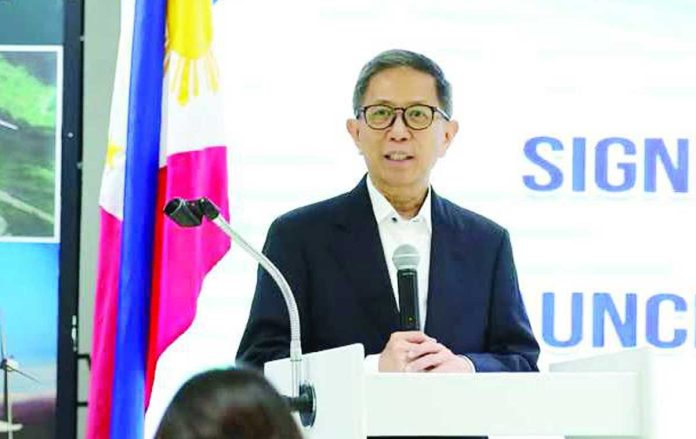
HIGHER price tags for insurance rates to cover coal-fired power plants have been haunting the private sector. This is an issue that might hamper the development of facilities not covered by a moratorium, according to Energy Secretary Raphael Lotilla.
At a briefing in Taguig City, Lotilla said that the insurance industry has “shown reluctance in terms of providing reasonable rates of insurance for the power sector…”
The “significant increase” was especially true for existing coal facilities amid the country’s shift to clean energy, he told reporters Thursday.
Lotilla, however, did not provide figures.
“And not only that they have increased, but they are reluctant to re-insure when it is a coal-fired power plant,” he added.
Lotilla noted that some younger coal plants with about 7,000 megawatts of capacity may “have difficulty sourcing their insurance.”
“We have the challenge of getting not only financing for those that are still to be built, but the insurance premiums that are being charged, especially for these power plants,” he added.
In 2020, the Department of Energy (DOE) imposed a moratorium on new coal plants to cut carbon emissions and support the government’s push to shift to clean energy.
But the DOE later clarified that there was no total ban on developing coal-fired power plants in the country. Existing and operational facilities that have made commitments for expansion can still pursue these.
Lotilla said the government has initiated talks with these insurance companies to address their worries.
“By having these discussions…, we’ll be able to help convince them that the risks that they associate with the Philippines are actually much less than what they are inputting now as part of their premiums,” he said.
Last year, Lotilla said the country would maximize the use of newer coal plants to ensure the market has enough baseload capacity until 2030.
Coal is still a dominant contributor in power generation, accounting for 63 percent of the country’s supply.
The government has a goal of increasing renewable energy’s share in the power generation mix to 35 percent by 2030. Currently, renewables account for 22 percent. (Lisbet K. Esmael © Philippine Daily Inquirer)







